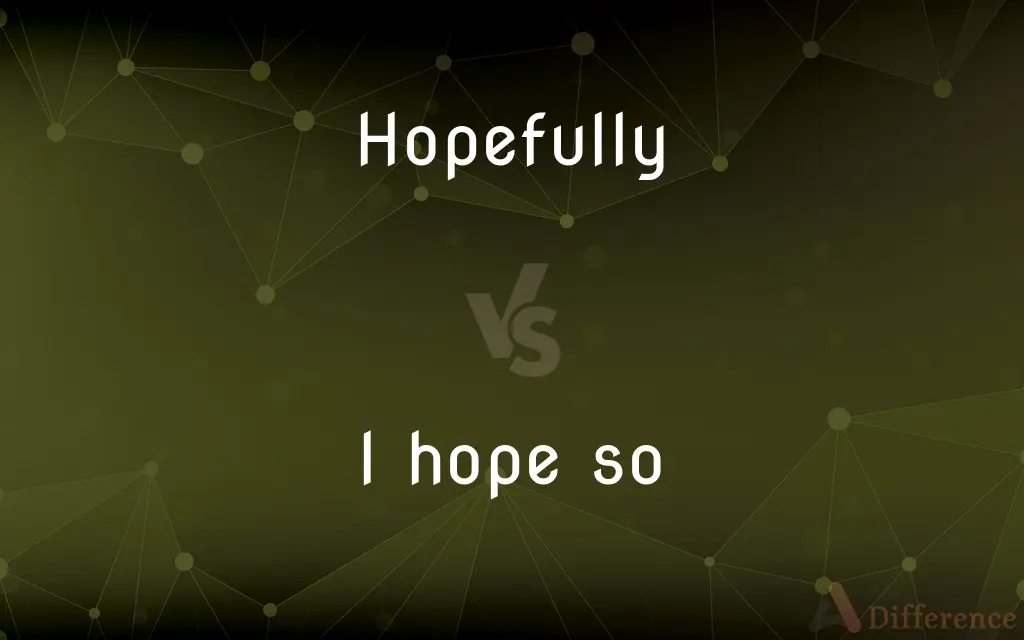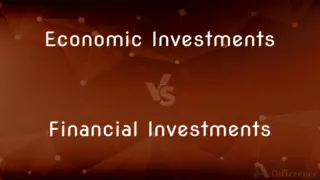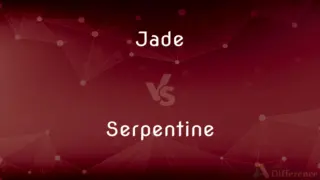Hopefully vs. I hope so — What's the Difference?
By Maham Liaqat & Fiza Rafique — Published on March 1, 2024
"Hopefully" is an adverb expressing a desire for a certain outcome without certainty, while "I hope so" is a personal statement expressing individual hope for a specific result.

Difference Between Hopefully and I hope so
Table of Contents
ADVERTISEMENT
Key Differences
"Hopefully" is used to express hope in a general sense, often reflecting an overall atmosphere of optimism regarding a future event. It doesn't specify who is hoping, making it a broad, somewhat impersonal expression of desire for a particular outcome. In contrast, "I hope so" clearly indicates that the speaker personally hopes for a specific result, making it a more direct expression of individual sentiment.
The usage of "hopefully" can imply a passive attitude, as it doesn't directly involve the speaker's personal feelings or actions in achieving the hoped-for outcome. It's more about setting a tone of optimism. On the other hand, "I hope so" suggests a more active emotional investment by the speaker in the desired result, emphasizing their personal desire for it to come true.
Grammatically, "hopefully" functions as an adverb, modifying verbs, adjectives, or other adverbs, often placed at the beginning of a sentence to modify the sentence as a whole. "I hope so," however, is a complete sentence, with "I" as the subject, "hope" as the verb, and "so" acting as a pro-form to refer back to a previously mentioned or implied outcome.
In conversation, "hopefully" might be chosen for its brevity and its ability to convey a general sense of optimism without committing to a personal statement. "I hope so" is more likely used in response to a question or statement, providing a personal assurance or affirmation of one's hopes regarding the matter discussed.
The choice between "hopefully" and "I hope so" often depends on the context and the speaker's intention. While "hopefully" casts a general sense of optimism, "I hope so" is a more intimate expression, revealing the speaker's personal stake in the outcome.
ADVERTISEMENT
Comparison Chart
Part of Speech
Adverb
Sentence (personal statement)
Implication
General hope or optimism
Personal hope for a specific outcome
Emotional Investment
Less direct, broad optimism
Direct, personal investment in outcome
Usage in Sentence
Can modify an entire sentence or verb
Used as a standalone response or statement
Contextual Suitability
General statements of hope
Personal responses to questions or discussions
Compare with Definitions
Hopefully
Expressing a general wish for something to happen.
Hopefully, it won't rain during the picnic.
I hope so
Reflects a speaker's personal desire.
Do you think we'll win? I hope so.
Hopefully
Indicates hope without specifying who hopes.
Hopefully, the package arrives on time.
I hope so
Used in response to direct questions.
Is the project on schedule? I hope so.
Hopefully
Used to convey optimism about a future event.
Hopefully, the team wins the championship.
I hope so
Involves emotional investment in the outcome.
Will they agree to our terms? I hope so.
Hopefully
Often placed at the beginning of a sentence.
Hopefully, we'll make it to the airport on time.
I hope so
Indicates individual optimism.
Will it stop raining soon? I hope so.
Hopefully
Implies a desire for a positive outcome.
Hopefully, all goes well with the presentation.
I hope so
Personal expression hoping for a specific outcome.
Do you think you'll get the job? I hope so.
Hopefully
In a hopeful manner
We began our journey hopefully.
Hopefully
In a hopeful manner.
Hopefully
(uncomparable) It is hoped that; I hope; we hope.
Hopefully, my father will arrive in time for the show.
She was buried with her mom and hopefully they are together now.
Hopefully
In a hopeful manner.
Hopefully
I hope; if all goes well; as, hopefully, the dress will be ready before the party.
Hopefully
With hope; in a hopeful manner;
We searched hopefully for a good position
Common Curiosities
Why use "hopefully" instead of "I hope so"?
"Hopefully" offers a more general expression of optimism, useful when the speaker wants to avoid a direct personal statement.
Is there a difference in emotional investment between the two?
Yes, "I hope so" indicates a more direct and personal emotional investment in the outcome.
Is "I hope so" a personal statement?
Yes, it's a personal statement expressing the speaker's hope for a specific outcome.
What does "hopefully" imply?
It implies a general sense of optimism about a future event without specifying who is hoping.
Can "hopefully" be used in formal writing?
While traditionally debated, it is widely accepted in modern usage, including formal contexts.
How do "hopefully" and "I hope so" function grammatically?
"Hopefully" is an adverb, while "I hope so" is a sentence with a subject, verb, and a pro-form acting as an object.
In what context would "I hope so" be more appropriate than "hopefully"?
In personal conversations or responses to questions where the speaker's individual hope is directly relevant.
Is "I hope so" used to agree with someone?
It can be, especially in contexts where the speaker is affirming their hope in alignment with the topic discussed.
Do "hopefully" and "I hope so" convey the same level of certainty?
Both express uncertainty about the future but differ in the level of personal emotional investment.
Can "hopefully" indicate who is hoping?
No, it does not specify who is hoping, making it a more general expression.
Can "hopefully" modify an entire sentence?
Yes, it can modify an entire sentence by conveying a general atmosphere of hope.
Is "I hope so" more intimate than "hopefully"?
Yes, because it reveals the speaker's personal desire and hope.
How does the use of "hopefully" affect the tone of a sentence?
It can make the sentence sound more optimistic and less directly personal.
Why might someone prefer "hopefully" over "I hope so"?
For its brevity and to express a wish without making a personal statement.
What is the historical controversy around "hopefully"?
Its use as a sentence adverb has been debated among grammarians, but modern usage largely accepts it as conveying general hope.
Share Your Discovery

Previous Comparison
Economic Investments vs. Financial Investments
Next Comparison
Jade vs. SerpentineAuthor Spotlight
Written by
Maham LiaqatCo-written by
Fiza RafiqueFiza Rafique is a skilled content writer at AskDifference.com, where she meticulously refines and enhances written pieces. Drawing from her vast editorial expertise, Fiza ensures clarity, accuracy, and precision in every article. Passionate about language, she continually seeks to elevate the quality of content for readers worldwide.
















































